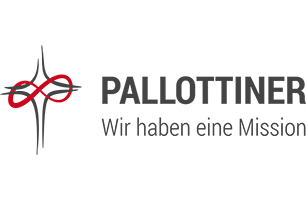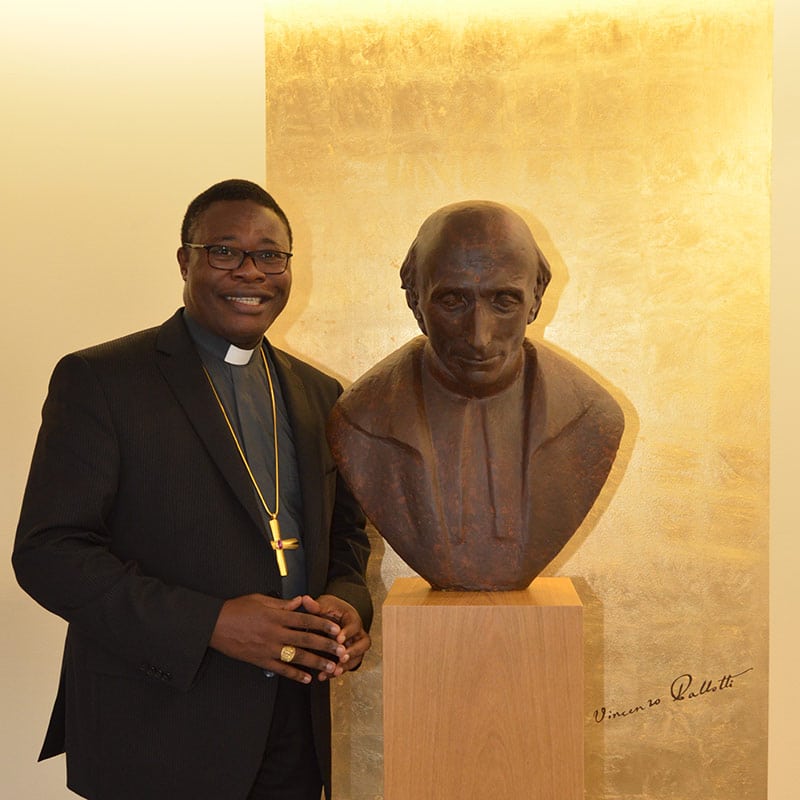A prayer for peace in Cameroon’s wild north
Bishop Bruno Ateba SAC
Near the Nigerian border in the region of Extrême-Nord, a wild landscape with savanna and steppe, lies Bishop Ateba’s diocese of Maroua-Mokolo.
Help in the refugee camp
It was just in the neighboring Nigerian diocese that the infamous Boko Haram was founded. These Islamists are still there – although noticeably weakened – and repeatedly cross the border to commit acts of terrorism in Cameroon. The people are all afraid, both Christians and Muslims. 45,000 from Nigeria itself have fled to the diocese of Maroua-Mokolo. So the care of these needy people, spread out in refugee camps, is added to the Bishop’s responsibilities. Christians in his diocese recite, after each service, a special prayer for peace.
A children’s home under construction
One of his other projects is to take care of the many street children. One day a child living on the street said: “Bishop Bruno, do you know what I wish for my birthday? I would like to go to school, eat something every day and, if I am ill, I would like to go to the hospital! ”
These children need support and love, which is why the diocese has become particularly involved. Thanks to generous and widespread support from Europe, the construction of a children’s home in his home city of Maroua is progressing slowly.
Enthusiasm for the faith
Bishop Ateba was born in 1964 in Zoétélé in the south of Cameroon, in the middle of the jungle. His grandfather was a catechist, so his enthusiasm for Jesus and his faith probably came from him. He felt a special connection to the Spiritans, whose missionary community was very active in his village, and wanted to become a priest from a young age.
Later he got to know and appreciate the Pallottines:
“The Pallottines were and are very important for spirituality in Cameroon. They were the first missionaries in my homeland. In the past, the church was thought of hierarchically from top to bottom, from the pope to the bishops to the priests, and down to the faithful. The Pallottines have always lived for us and emphasised that we are all children of God, that we are all called to be apostles, that everyone has an important place in our church and in our village community. ”
In August 1989 he made his first profession and became a Pallottine.
And that endures to this day: “I am a bishop today, but I am and always will be a Pallottine!” That is why the traditional slogan of the Pallottines also stands in his coat of arms: “Caritas Christi Urget nos” – the love of Christ urges us!
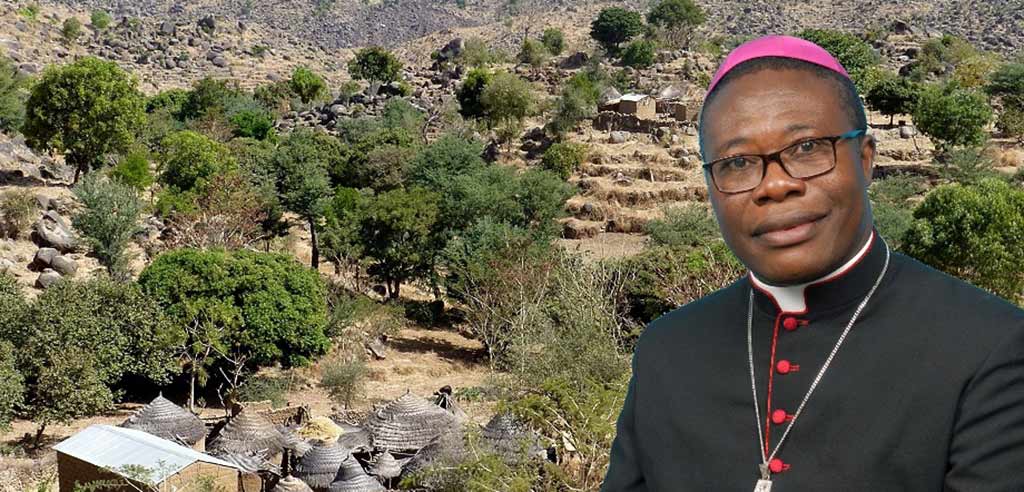



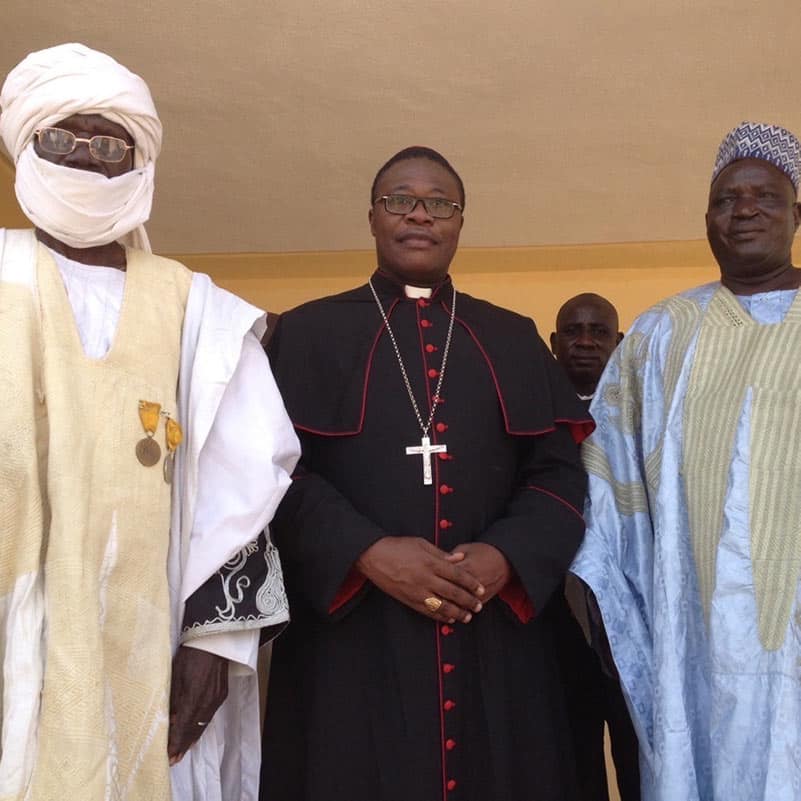

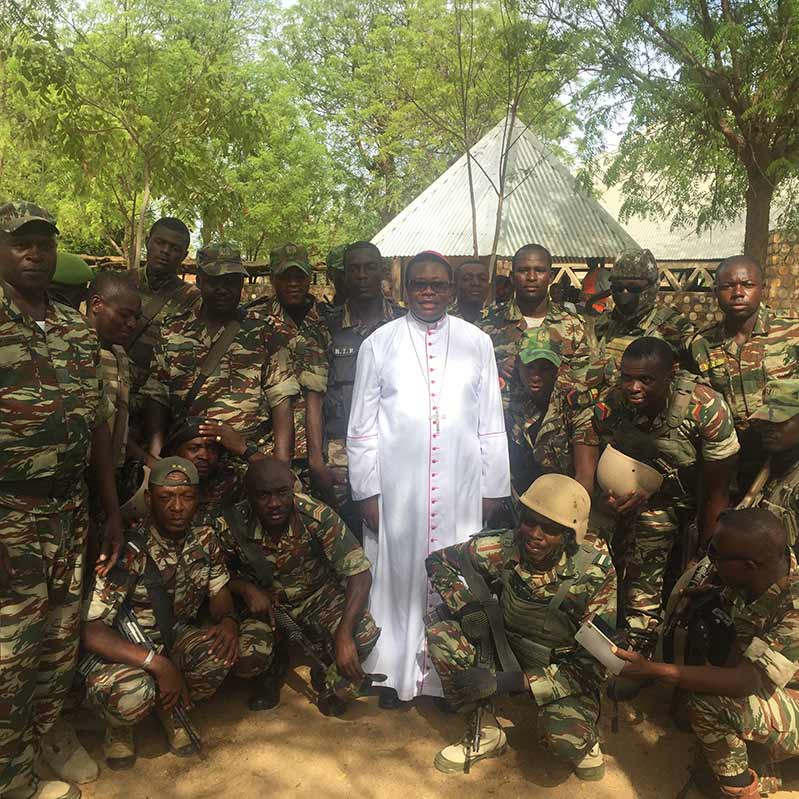
Our ‘organic’ church
Bishop Ateba has neither a bishop’s palace nor a cathedral. There is no such thing in the north, because many people are very poor. There is no church tax, people donate to the priests from their natural resources – eggs, carrots or farm animals. Therefore, he is all the more pleased with progress being made in the construction of his episcopal house and the church.
“We are currently worshiping outdoors, under a tree, we have an organic church, so to speak,” he jokes. “It will not be a palace, just a very small episcopal house, where I can receive and accommodate guests.”
Life in the spirit of Pallotti
Bishop Ateba emphasizes that both the Pallottine charism and the Pallottines themselves are of tremendous assistance in his diocese. Many christians still carry the old image of a hierarchical church in which the worshipers have the rank of spectators. He is daily committed to changing that perception. All believers should feel that they play a role at the centre and that the church depends on their commitment. “In my diocese I listen to the people, I assign them responsibility and trust the community in that area, because all the baptized have something important to say, we are all called to succeed the apostles!”
For him the roots of this vision lie in Europe. Starting from St Vincent Pallotti and the community in Masio, Italy, enthusiasm for this kind of spirituality spread 125 years ago across the Alps from Italy to Germany. From there young brothers and priests (and, of course, sisters) went all over the world – to Canada, South America, India, South Africa and, in 1890, also to Cameroon. Bishop Ateba is very grateful to “the fathers and mothers of the faith”.
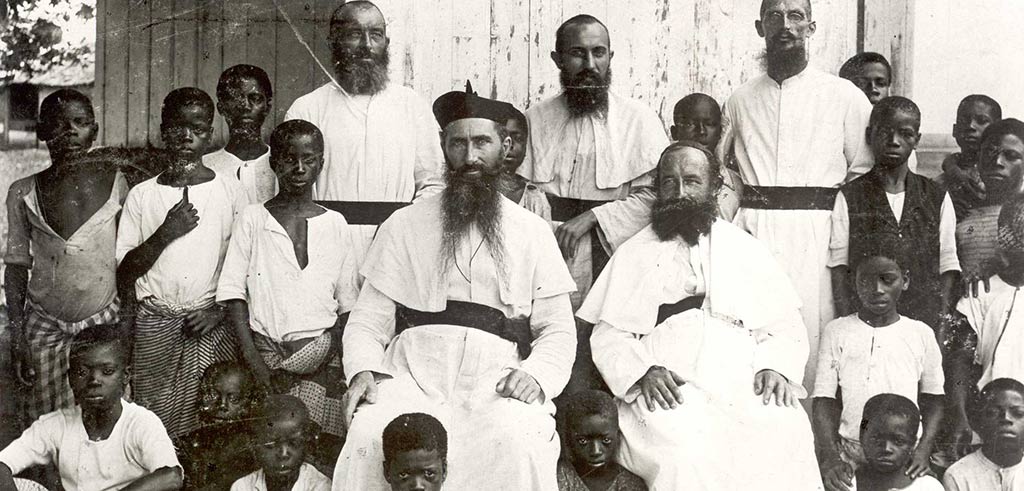
Support for Germany in pastoral care
The Mother Province in Germany today has many grateful sons and daughters in Cameroon who are ready to give something back if that is required. As an example, brothers and sisters from here are willing to take care of what can no longer be done by their German brothers and sisters alone, especially in the area of pastoral care. Problems that might occasionally arise with foreign priests in Germany should not be feared. Men and women in Cameroon live the same spirituality and would come to Germany with very good language skills.
“Throughout Pallottine history missionaries have always had to open themselves up to the host country, to learn not only local language and culture, but to live amongst the people. And now we can reverse that for our Mother Province! ”
‘Ember’ spirituality
What are the differences? Bishop Ateba very carefully seeks to symbolize the relationship between African and European spirituality:
“Once upon a time there was a big fire. Afterwards you could see only a heap of ashes. But when you got closer it was still hot and if you touched the topmost layer of ash, you would quickly realize that it still glowed underneath! ”
The roots of the christian faith and the enthusiasm of earlier generations are still visible and tangible, both in Africa and in Europe. But in Europe you have to take a closer look so that you recognize those roots. It may be helpful for European christians to reflect on these common roots over and over again.
Here you can support the work of Bishop Ateba: Donate online now
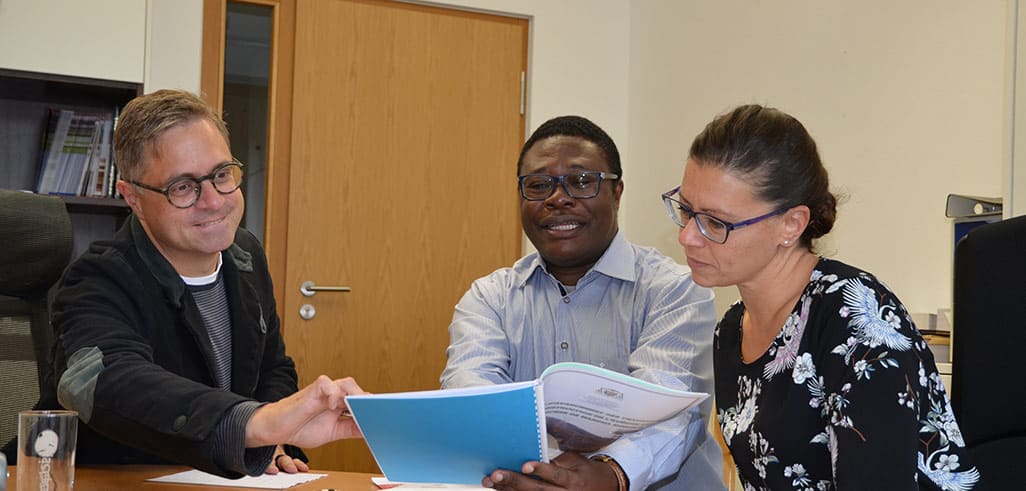
(17.11.2017 / JE)
Das könnte Sie auch interessieren
Mitreden, Mitmachen, Mithelfen!
Eine andere Dimension des Gebets
Sich einbringen ins Ganze
Erfahren Sie mehr über unsere Gemeinschaft
Wir freuen uns, von Ihnen zu hören!
Gemeinsam die Welt verändern!
